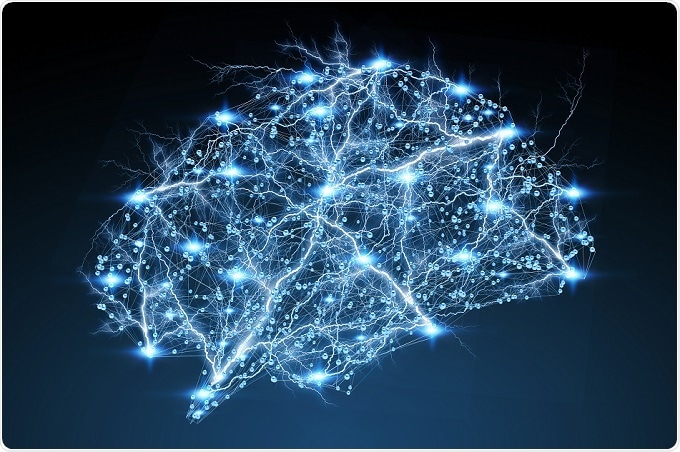https://www.news-medical.net/news/20170919/Leading-researchers-join-forces-to-create-a-e2809cstandard-modele2809d-of-the-brain.aspx
Leading neuroscientists are teaming up to study the brain in a way
that is modelled on physics projects, where researchers look for new
particles.
 Credit: sdecoret/Shutterstock.com
The International Brain Lab (IBL) involves 21 leading neuroscience
laboratories across Europe and the US that will collaborate to generate
theories about how the brain works. The project will focus on one
behaviour that all animals share, namely foraging.
Credit: sdecoret/Shutterstock.com
The International Brain Lab (IBL) involves 21 leading neuroscience
laboratories across Europe and the US that will collaborate to generate
theories about how the brain works. The project will focus on one
behaviour that all animals share, namely foraging.
The conventional way of conducting cellular neuroscience is for individual laboratories to study a limited amount of brain circuits during simple behaviors, but the IBL will look at how the entire mouse brain generates behaviors in changing environments that mirror the natural world.
Chips will be used that can simultaneously record the electrical pulses of thousands of neurons, as will technologies such as optogenetics, which uses light to control neurons.
Tobias Bonhoeffer from the Max Planck Institute for Neurobiology in Germany says the approach will likely yield significant new insights into how the brain behaves.
IBL will operate much like the two CERN collaborations, ATLAS and CMS, which involved experimentalists and theoreticians from hundreds of laboratories across the world who tested the standard model of particle physics. Near-daily web meetings will be held as part of a collaborative decision-making process and teams will make decisions by simple consent rather than only acting once a group consensus is reached.
For the first two years, informatics tools will be built to allow the automatic sharing of data and to set up a reliable experimental protocol for a foraging task in mice. All members will need to register their experiments before starting them and the results will immediately be available to all members of the collaboration.
“It is a big challenge — and it’s not the way the field works at the moment,” says IBL member Anne Churchland from Cold Spring Harbor Laboratory in New York.
The second phase of the project will be spent testing theories on how the brain combines diverse information to make decisions, moment-to-moment.
Pouget also hopes that many more laboratories will join the project so that a wider suite of behaviors can be studied.
 Credit: sdecoret/Shutterstock.com
Credit: sdecoret/Shutterstock.comThe conventional way of conducting cellular neuroscience is for individual laboratories to study a limited amount of brain circuits during simple behaviors, but the IBL will look at how the entire mouse brain generates behaviors in changing environments that mirror the natural world.
Chips will be used that can simultaneously record the electrical pulses of thousands of neurons, as will technologies such as optogenetics, which uses light to control neurons.
Tobias Bonhoeffer from the Max Planck Institute for Neurobiology in Germany says the approach will likely yield significant new insights into how the brain behaves.
IBL will operate much like the two CERN collaborations, ATLAS and CMS, which involved experimentalists and theoreticians from hundreds of laboratories across the world who tested the standard model of particle physics. Near-daily web meetings will be held as part of a collaborative decision-making process and teams will make decisions by simple consent rather than only acting once a group consensus is reached.
No one will be able to stop a proposed experiment being carried out without a very convincing proposal of why it would be a disaster,”The project will aim to develop and test theories about how the brain codes for and computes information and to create the equivalent of physicists’ standard model.
Alexandre Pouget, IBL from the University of Geneva in Switzerland.
For the first two years, informatics tools will be built to allow the automatic sharing of data and to set up a reliable experimental protocol for a foraging task in mice. All members will need to register their experiments before starting them and the results will immediately be available to all members of the collaboration.
“It is a big challenge — and it’s not the way the field works at the moment,” says IBL member Anne Churchland from Cold Spring Harbor Laboratory in New York.
The second phase of the project will be spent testing theories on how the brain combines diverse information to make decisions, moment-to-moment.
Pouget also hopes that many more laboratories will join the project so that a wider suite of behaviors can be studied.

No comments:
Post a Comment